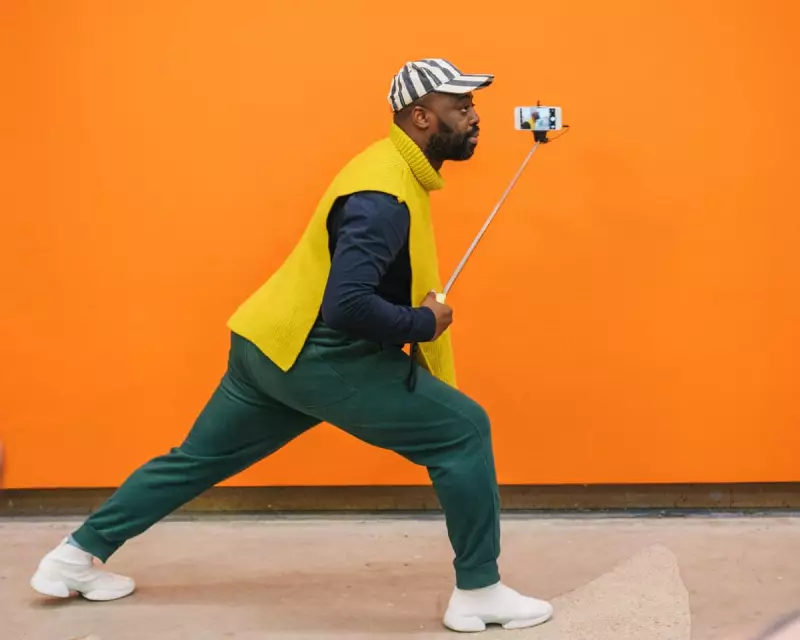
The lobby of Kettle's Yard in Cambridge is currently filled with a most unusual soundscape. The artist Harold Offeh can be heard humming, umm-ing, and mmm-ing through the space, creating an atmospheric overture that ranges from the sensual to the sleepy, from childlike airplane noises to something more profound. This auditory introduction sets the stage for his major new exhibition, Mmm Gotta Try a Little Harder, It Could Be Sweet.
A Career of Performance and Exploration
For more than two decades, Harold Offeh has established himself as a dynamic and evolving artist, never settling in one mode of expression. The exhibition presents a journey through his career, beginning with early works like Smile from 2001, created while he was still a student. In this compelling video piece, we see a close-up of Offeh's face maintaining a sardonic, rictus-like grin as he listens on repeat to Nat King Cole's version of Smile.
The show's title itself is a lyrical quote from Portishead's seminal 1994 album Dummy, and these words are emblazoned across the gallery walls in large, gloopy lettering. The exhibition is a vibrant, jostling collection of life, featuring song, dance, skits, and routines that capture both public moments and strikingly private performances.
Re-enacting Icons and Challenging Stereotypes
One of the most powerful threads running through Offeh's work is his engagement with iconic figures and racial stereotypes. In a series of works, he meticulously mimics the exaggerated facial expressions of Hattie McDaniel in her role as Mammy from Gone With the Wind. McDaniel, who faced significant racism and discrimination throughout her life, was the first Black recipient of an Oscar in 1939.
Offeh dons a white headscarf and runs the full gamut of her on-screen performance, from eye-rolling to cheek-blowing, offering both homage and critique of this racially stereotyped portrayal. This complex relationship with performance and identity continues in his celebrated Covers series, where he performs drag impersonations of Black R&B and disco stars.
In one particularly memorable piece, Offeh gets naked in his bathroom, slathering himself in oil to attempt Grace Jones's anatomically impossible pose from the cover of her Island Life album. The work is a striking blend of parody, vulnerability, and desire, showcasing the artist's willingness to fully commit to his explorations.
Vulnerability and Social Inquiry
Beyond the glamour and performance, Offeh's work often reveals a profound vulnerability. In his early 2002 work Four Ways to Feel Amazing, we see the artist listening to self-help advice in various private and public settings. Naked in his bath, he is advised to nurture himself; standing alone on a street, he's told to stop comparing himself to others; on the lavatory, he's informed he is sitting on top of the world.
The final vignette, featuring Offeh alone in a bare room staring at a flipping digital clock, creates a crushing sense of futility and stalled time that is both bleak and darkly humorous. This underlying pain exists just beneath the evident joyfulness of much of his early work.
In recent years, Offeh's focus has shifted towards community-based projects, which he presents as a form of social inquiry. These include work with young people on a project for the London Underground and a playground design influenced by Sun Ra and George Benson. While these participatory projects have their own rewards, the exhibition suggests that the raw energy of his earlier performance-based work remains uniquely compelling.
Harold Offeh: Mmm Gotta Try a Little Harder, It Could Be Sweet runs at Kettle's Yard in Cambridge until 1 March, offering a comprehensive look at an artist who continues to probe the complexities of identity, desire, and performance with unflinching honesty and creativity.





